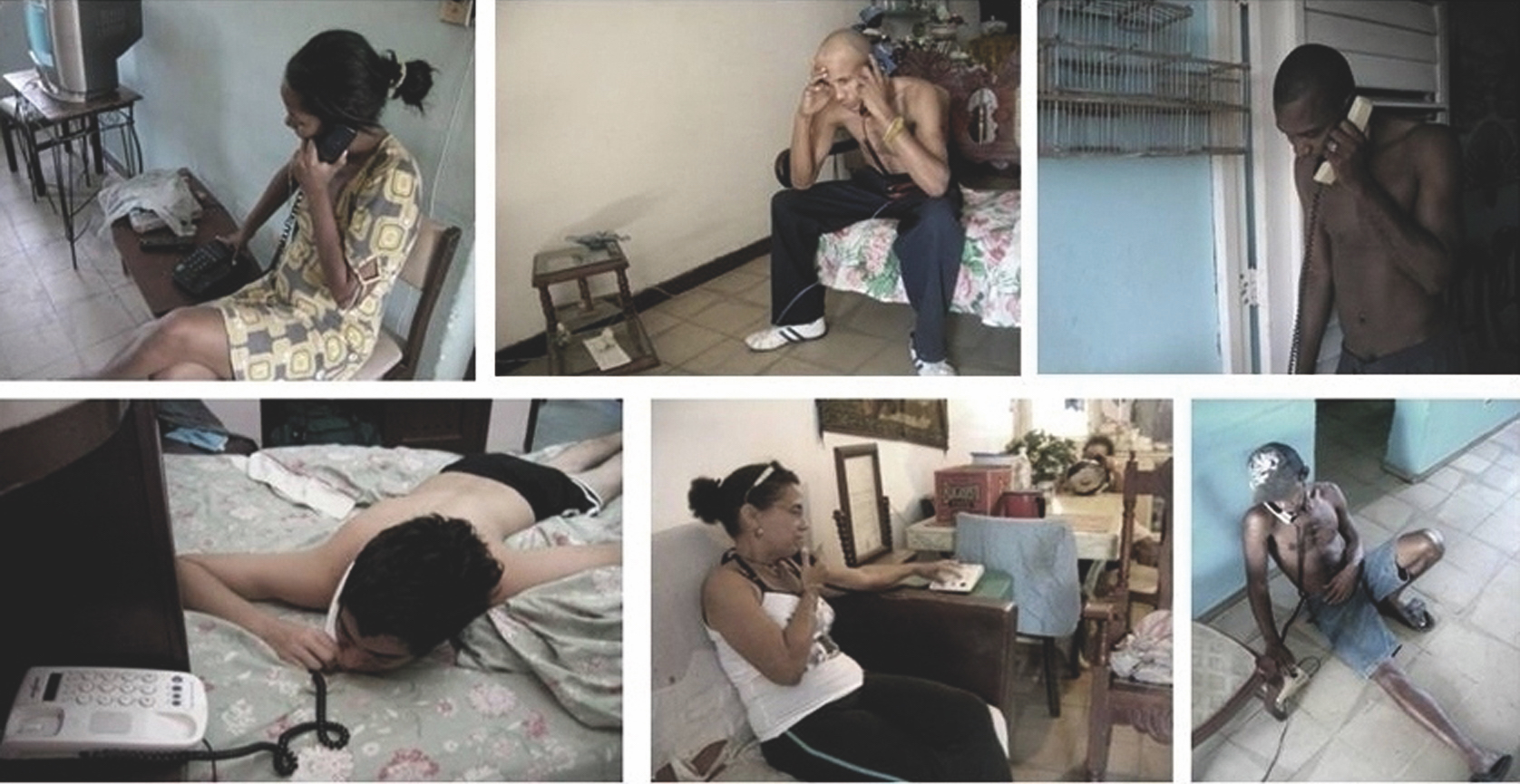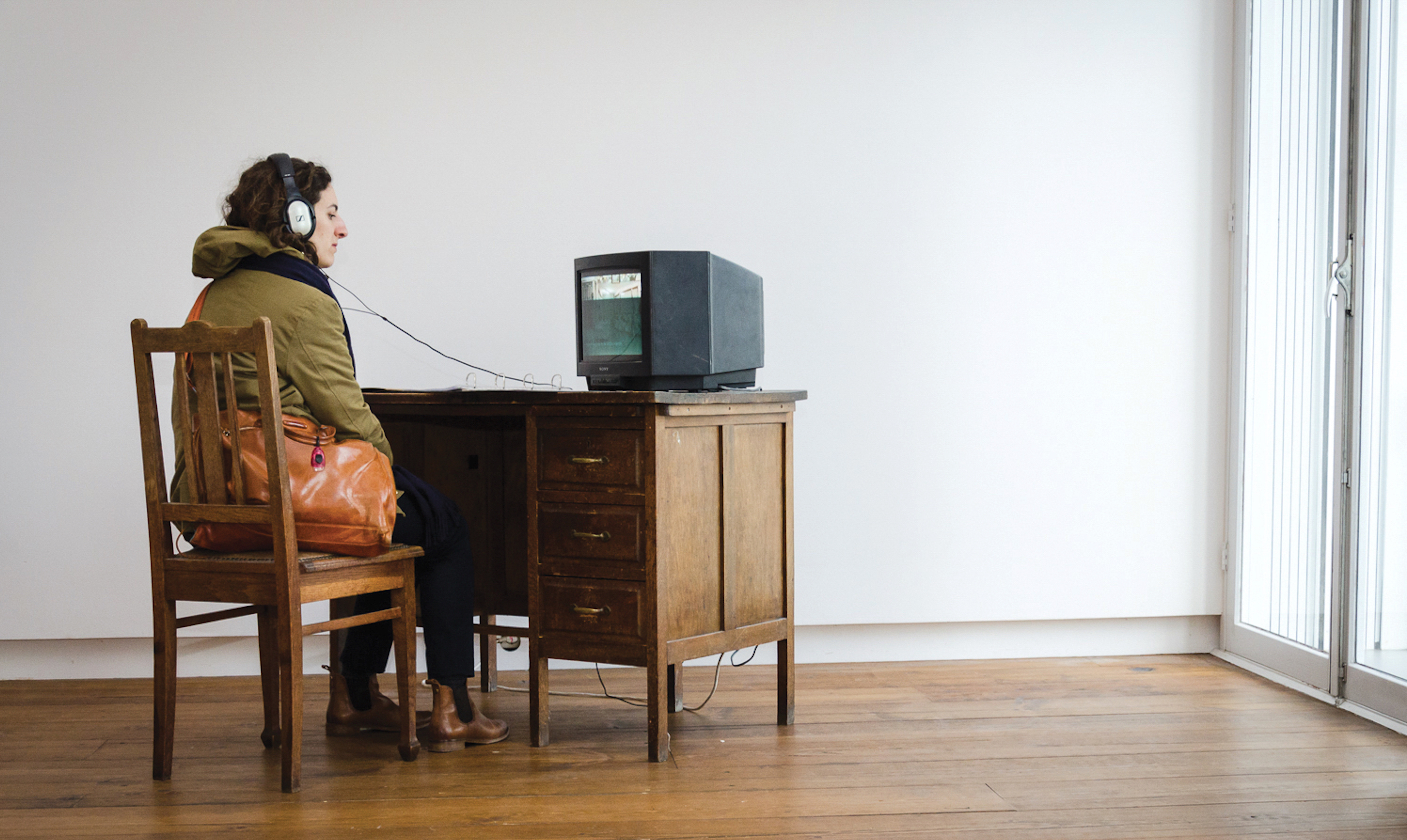The Value of Absence - Excuses to be Absent from your Workplace
(2012)
Produced in Havana and Barcelona
Video installation
Office desk, images, documentation,
square tv monitor
Video, DVD PAL, colour, stereo
10:20 min
Dissatisfaction with low wages not only has generated an overall lack of
belief toward Cuba’s socialist economic
model, but many public servants also
often come up with excuses to get off
work. This is standard practice as state
enterprises, already embodying a high
degree of inefficiency, are quite tolerant
towards absences from the workplace.
The ‘Value of Absence’ gives shape to this
phenomenon.
Taking advantage of this situation, Melis finds people willing to get paid for not showing up to work and asks to record their phone conversations as they’re justifying their absence to their boss. The artist pays for their excuses. The monetary value of the excuse depends on the number of days they manage to ge off work and equals the amount deducted from their salary as a result of their absence. Thus a group of people receive the same amount of money as they would have from the State but in return for their absence. The boundaries between art and labour become porous as the artist intends to keep as many people out of work as possible. The better the artist is at persuading them to stay away from work, the better it is for his own work.
Taking advantage of this situation, Melis finds people willing to get paid for not showing up to work and asks to record their phone conversations as they’re justifying their absence to their boss. The artist pays for their excuses. The monetary value of the excuse depends on the number of days they manage to ge off work and equals the amount deducted from their salary as a result of their absence. Thus a group of people receive the same amount of money as they would have from the State but in return for their absence. The boundaries between art and labour become porous as the artist intends to keep as many people out of work as possible. The better the artist is at persuading them to stay away from work, the better it is for his own work.
Visual documentation of the work

‘Permanent Playfullness’, Mendes Wood DM, São Paulo, Brasil

‘Untitled (two takes on crisis)’, De Appel Arts Center, Amsterdam, The Netherlands
